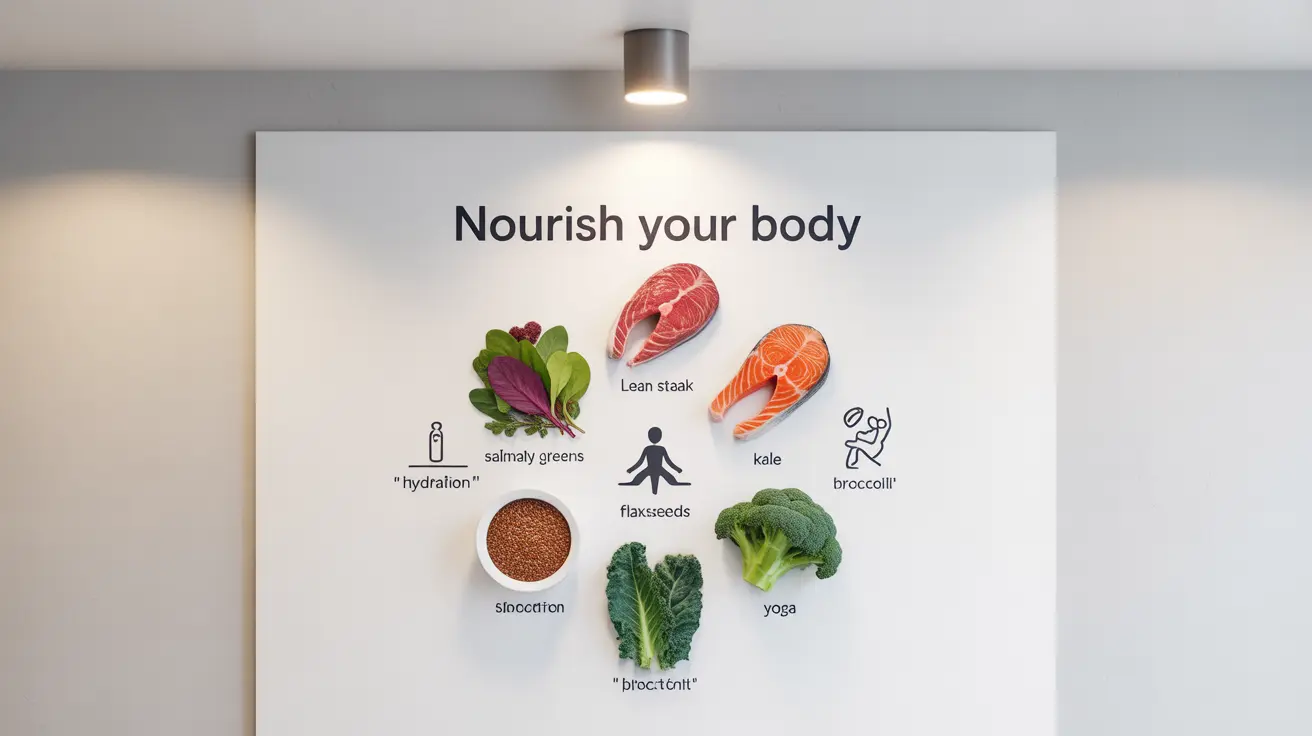Managing menstrual blood clots can be challenging and concerning for many women. While some clotting during menstruation is normal, excessive clots may indicate underlying issues or require lifestyle modifications. This guide explores natural methods to help reduce and manage period blood clots effectively.
Understanding how to address period blood clots naturally can empower you to take control of your menstrual health. From dietary changes to lifestyle adjustments, there are several evidence-based approaches that may help minimize clotting during your monthly cycle.
Understanding Period Blood Clots
Blood clots during menstruation occur when the body's natural anticoagulant processes are overwhelmed by heavy menstrual flow. These clots can vary in size and frequency, with anything larger than a quarter potentially warranting medical attention. While some clotting is normal, excessive clotting may indicate hormonal imbalances or other health concerns.
Nutritional Approaches for Managing Period Clots
Essential Nutrients and Foods
Certain nutrients play crucial roles in managing menstrual health and blood flow:
- Iron-rich foods (leafy greens, lean meats, legumes)
- Omega-3 fatty acids (fatty fish, flaxseeds, chia seeds)
- Vitamin K (kale, spinach, broccoli)
- Vitamin E (nuts, seeds, vegetable oils)
Hydration and Blood Flow
Proper hydration is essential for maintaining healthy blood flow and reducing clot formation. Aim to drink at least 8-10 glasses of water daily, especially during your menstrual cycle. This helps thin the blood naturally and supports overall circulation.
Lifestyle Modifications for Reducing Blood Clots
Exercise and Movement
Regular physical activity can help improve circulation and reduce the likelihood of excessive clotting. Focus on moderate exercises like:
- Walking
- Swimming
- Yoga
- Light stretching
Stress Management
High stress levels can affect hormonal balance and menstrual health. Incorporate stress-reduction techniques such as meditation, deep breathing exercises, or regular relaxation practices into your daily routine.
Natural Supplements and Herbal Remedies
Several natural supplements and herbs may help manage menstrual clotting, though it's important to consult with a healthcare provider before starting any supplement regimen:
- Ginger
- Turmeric
- Red raspberry leaf
- Evening primrose oil
When to Seek Medical Attention
While natural remedies can be helpful, certain symptoms require professional medical evaluation:
- Blood clots larger than a quarter
- Severe cramping
- Periods lasting longer than 7 days
- Soaking through pads/tampons hourly
- Unusual menstrual patterns
Frequently Asked Questions
What natural foods and supplements can help reduce blood clots during my period?
Foods rich in iron, omega-3 fatty acids, and vitamins K and E can help manage blood clots. Consider incorporating leafy greens, fish, nuts, and seeds into your diet. Supplements like ginger, turmeric, and evening primrose oil may also be beneficial when taken under medical supervision.
How does staying hydrated affect heavy menstrual bleeding and clot formation?
Adequate hydration helps thin the blood naturally and supports healthy circulation, potentially reducing the formation of large clots. Drinking plenty of water can also help maintain proper blood volume and flow during menstruation.
What lifestyle changes can help stop or reduce blood clots during menstruation?
Regular exercise, stress management techniques, maintaining a healthy weight, and getting adequate sleep can all help reduce menstrual clotting. These lifestyle modifications support hormonal balance and overall menstrual health.
Are herbal remedies like raspberry leaf or apple cider vinegar effective for managing heavy periods and clots?
While some women report benefits from herbal remedies like raspberry leaf tea and apple cider vinegar, scientific evidence is limited. These remedies may help some individuals, but results can vary. Always consult with a healthcare provider before starting any herbal treatment.
When should I see a doctor if I have heavy bleeding with large blood clots during my period?
Seek medical attention if you experience blood clots larger than a quarter, severe cramping, periods lasting longer than 7 days, or if you're soaking through menstrual products hourly. These symptoms may indicate underlying conditions requiring professional evaluation.




